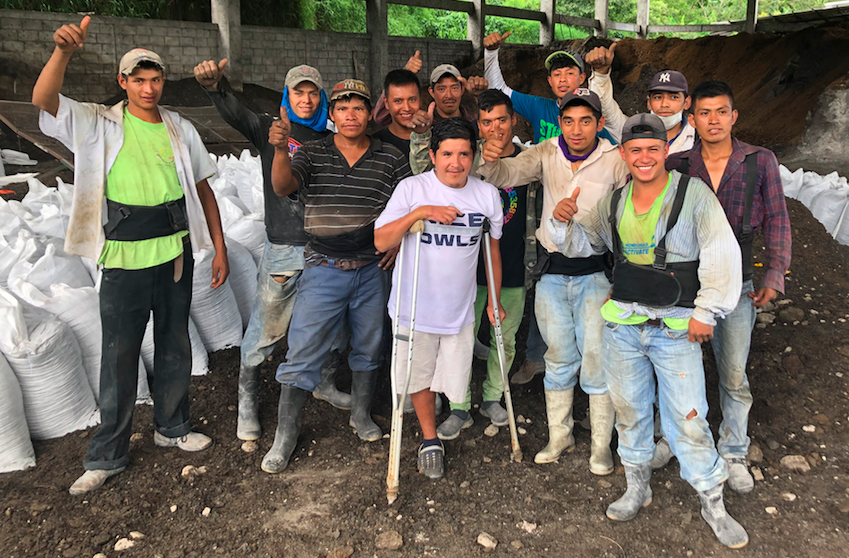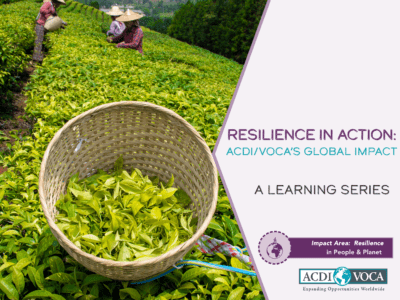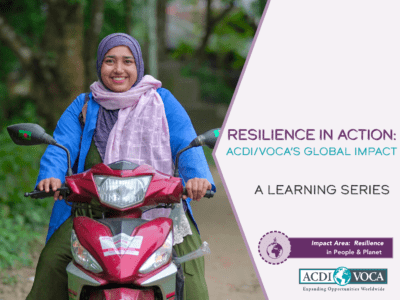
Honduras has been in the news for all the wrong reasons. Named “Murder Capital” of the World in 2012, the ignominious label has stuck (though no longer accurate) and Honduras remains at the front lines of the U.S. – Central American migration crisis.
As Chief of Party of the ACDI/VOCA-implemented USAID Transforming Market Systems Activity in Honduras, I’ve seen the impact of American investment in Central America. These programs help to build strong economies and address the drivers of migration. Throughout my time in Honduras, I have come across some “beacons of hope.” Their stories illustrate how targeted policy reform, access to education, transparency, justice, and economic development make Honduras a better and safer place to live.
The Honduran Arrow Man
Efrain Guevara, 31, is an agro-entrepreneur whose agricultural services business serves 40-50 farms in Marcala, a mountainous municipality in the heart of Honduras’s coffee land. Our USAID Transforming Market Systems Activity has helped him strengthen his business, one of ten small and medium-sized enterprises (SMEs) supported by the activity.
Formerly a coffee grower himself, Efrain lost his leg in a car accident two years ago. He sees his situation as that of an arrow: “the faster you want an arrow to go, the farthest behind you need to pull it first. My tragedy has only propelled me to think harder, to discover what opportunities lay in front of me.” Believing in agriculture’s potential, he remains in his community, creating jobs for himself and 11 young men.
“Little Girl in the Class” No Longer
Another beacon of hope, Paola Carcamo, 23, is an agricultural extension agent. She works for the private-sector partner with whom we’re launching a Youth Agricultural SMEs initiative. Paola introduces farmers to crop-improving technology. When I ask Paola why isn’t she in the United States, she says: “I earned my degree as an agronomist with great sacrifice – do you think I will throw that away [to] clean toilets instead? I didn’t brave five years of being ‘the little girl in the class’ for nothing. I have my family and my work here, there’s nothing like belonging where you live.”
Birder Turns Passion into Tourism Business
William Orellana, 35, completed USAID tour guide training in 2015. He’s now a sought-after guide who’s launched his own bird-watching company, Beaks and Peaks. William travels the world promoting Honduras at travel trade shows. Tourism is a principal weapon to tackle poverty and foster development, and Honduras is no exception. Our activity works with William and other operators in the region to boost Honduras’s reputation as a travel destination by providing training and technical assistance.
The USAID project I lead partners and empowers at all levels of the Honduran economy. We have alliances with dozens more resilient beacons of hope like the individuals I mentioned above. For the thousands of people who have decided to risk the uncertainty of migration, economic development implementers like ACDI/VOCA are investing in the millions more who’ve decided to stay to build a future at home. We can support them through U.S. foreign investment, which creates a stable environment for families to thrive.
This post was also published on USGLC’s Global Development blog July 9, 2019. Access it here.
Comments





